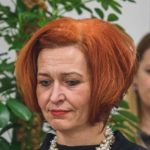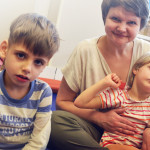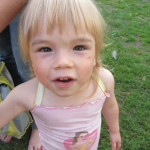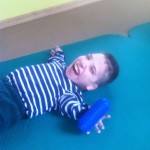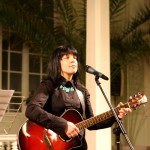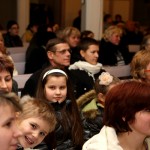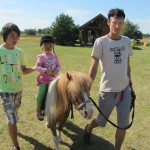A place where one can receive interdisciplinary services by facilitating a long-term result in the life of an individual child, as well as in the local community and at a broader level.
Unique services and opportunities in Eastern Europe
It will be possible to use a package of various services (medical and social rehabilitation, family training, various alternative therapies, e.g. dog therapy) in one place.
It is unique for the Baltics, as there are currently no alternatives that would cover the demand for neurorehabilitation services for children in such an extensive way.
Ilze Durņeva as a personality – head of the society with 7 years of experience, who started creating support groups for other families raising children with special needs due to the experience of her own family and her search for help. Thus she established the society “Dižvanagi” and brought together professionals who are now forming the core of the new centre. Ilze’s work not only includes the provision of services and organisation of support measures for 150 families in Latvia and 25 families abroad, but also the advocacy of interests through advancing recommendations for the development of social policy within the state, as well as in the municipality of Liepāja.
Baltic Rehabilitation Center "Dižvanagi"
Services
Home based neurorehabilitation
Palliative care for children at home
Individual consultations
Craniosacral therapy
Therapeutic massage
Montessori classes
Kanis-therapy
Support groups
Naturopathy
Kinesiology
Acupuncture
Sensory room
Home neurorehabilitation
Medically appraised social service Period of implementation – since 2011 The programme includes:
- A 5-day training cycle for the family (2 times per year)
- Evaluation of the health status of a child
- Individual consultation for a family (from 3 to 5h)
- Drawing up of a child development programme for 6 months
- Additional consultations during the programme implementation period
- A 12-day rehabilitation programme (1-2 times per year)
How our approach is different
The usual approach
Approach of Dižvanagi
Rehabilitation and additional examination is often carried out partially, lacking sequence and handing over the information.
Each child is examined individually and as a whole person considering the intellectual, physiological and mental state of the child.
Parents and specialists often speak dierent languages, there is a gap where should be translator/coordinator, and parents often feel helpless and can’t understand the condition of their child.
The whole family is a client; parents are being trained to understand their child and to be able to use appropriate actions in dierent situations, when the child is in need of help.
Help is given in the form of campaigns; the most intense actions are until the determination of the diagnosis and during the acute phase of disease.
Long-term rehabilitation for the child, intensive therapy at home each day.
Nutrition aspects are not evaluated and corrected if necessary, which creates additional stress for the patient’s body, and child is resistant to all the rehabilitation processes.
Adjustments of nutrition and the implementation of new habits are of great importance, as these changes can benefit the whole health of the organism.
The process of rehabilitation is fragmented and incomplete, it is not aimed towards a common goal, if health problems and indicators of development are not evaluated and incorporated into the concept of the whole person.
Children not only show improvement of their neurological state, but also general health and physiological functions.
The role of the parents is secondary, the main providers of the rehabilitation are health care professionals, rehabilitation doctors and specialists.
Actual involvement and role of the parent is a cornerstone in achieving the desired results.
Use of medicaments is an important factor to maintain the health of the child.
At the initial stages of rehabilitation, the use of drugs is limited or substituted with alternatives if possible.
Gallery
How to donate and provide support?
Account for donations
Society “Dižvanagi” Reg. No. 40008129221 7/9-29 Jēkaba Janševska Street, Liepāja, Latvia LV12HABA0551022460151, Swedbank
Tax rebates for enterprises
The Law on Enterprise Income Tax prescribes that tax shall be reduced for residents and permanent representations by 85 % of the amounts donated to a public benefit organisation (such as “Dižvanagi” society).
Tax rebates for individuals
Section 10 of the Law on Personal Income Tax prescribes that donations are considered justifable (prior to imposing tax on income, donation expenditures are also deducted from the amount of annual taxable income).
Donate here:
Rehabilitation Centre
Pony School
Home Neurorehabilitation Programme
Society “Dižvanagi”
Social Rehabilitation Institution (in LM Social Service Register)
Target audience of the activity | Children with special needs and their parents |
Place of the activity | Liepāja City, Kurzeme Region (Latvia) |
Duration of the activity | 5 years |
Social benefit status | Since July 23, 2009 |
Range in total | 150 families |


